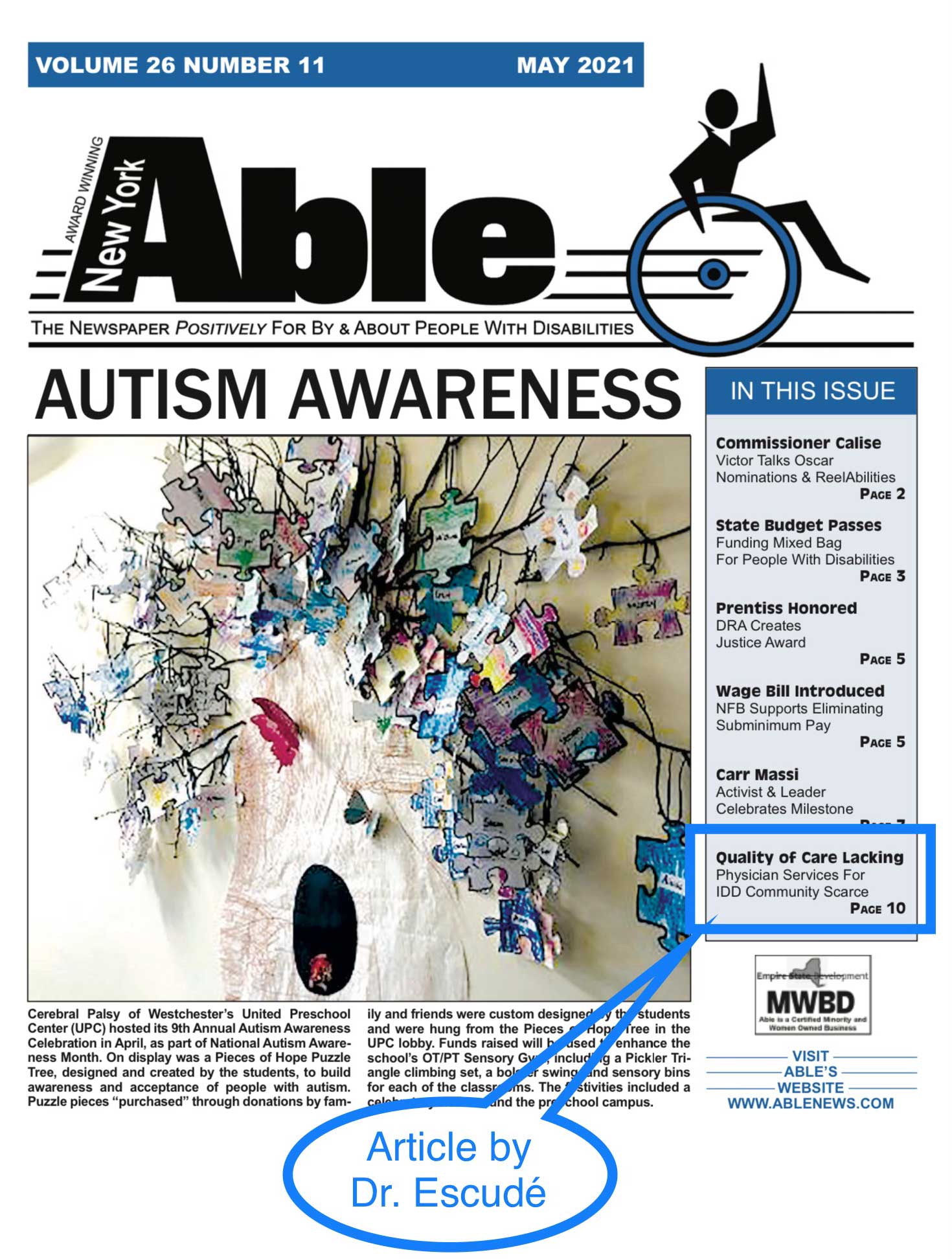
Quality Care to Those with IDD Scarce
ABLE, May 2021

Recently published data showed how almost 60 percent of physicians feel they cannot provide quality care to people who live with intellectual or developmental disabilities (IDD). In fact, a new survey reveals details on nurses’ difficult experiences with physicians in working to get appropriate healthcare for the people with IDD they support.
The study published in EC Nursing and Healthcare in February can be an emotionally difficult read. “Learning about current attitudes and perceptions about people with IDD that many physicians have is heartbreaking.,” said. Craig Escudé, physician and president of Intellect Ability. “It’s commonly known by family members, nurses, direct support professionals and people with disabilities that finding a clinician who understands the unique needs of people with disabilities is challenging.
The experiences of the nurses related in this survey explains why.” Some of the quotes provided by these nurses include: “During a consultation with an ER physician, the doctor stated that people like my patient aren’t meant to live that long and have no quality of life;” “Physician uncomfortable with treating individuals with IDD. Appeared either scared or annoyed;” and “I’ve had a number of physicians, instead of treating our individuals, recommend hospice because of a poor quality of life.” These comments further emphasize the need to improve how medical schools educate their students about the fundamentals of providing healthcare for people with disabilities.
“It’s more than just learning about how to treat medical conditions commonly seen in people with IDD like aspiration pneumonia and bowel obstruction,” said Escudé, who conducted the nursing survey, “Physicians should be taught about the support structure for people with IDD, how to facilitate better communication and, most importantly, about the often-missed direct relationship of various adverse behaviors to treatable, underlying medical causes.” A survey of 714 practicing physicians revealed that only about 40 percent of physicians were greatly confident about their ability to provide the same quality of care to patients with a disability and 56 percent strongly agreed that they welcomed people with a disability into their practices.
The study published in February also related that 82 percent of physicians believed that people with a significant disability have a worse quality of life than those without a disability. Several studies have shown that people with IDD have a greater likelihood of getting COVID-19 and of dying from COVID. The most recent study notes that people with an intellectual disability have a 5.9 times greater risk of dying from COVID the second, only to age, as the greatest risk factor.
The most recently developed program to train clinicians is the Curriculum in IDD Healthcare. It’s a six-module, online course that teaches the fundamentals of IDD healthcare FOR medical students and practicing clinicians, “Online learning programs make it easy to learn from experts in various fields without having to hire new school teaching staff or attending live lectures,” Escudé said. “When we educate clinicians, we save lives,” says Escudé. “The efforts being made to improve IDD healthcare education, while overdue, will undoubtedly have a tremendously positive impact on the lives of millions of people with intellectual and developmental disabilities in the US.”
Feature originally published by Able.


